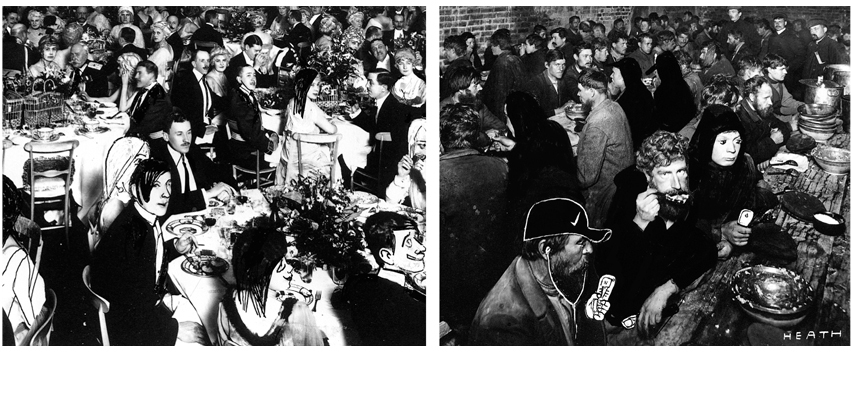• Home
St Paul’s Cathedral decided not to take court action against anti-capitalist demonstrators who, since 15 October, had kept 200 tents pitched outside. The Corporation of London suspended its own legal action. The Rt Rev Graeme Knowles resigned as Dean of St Paul’s, a post he had held since 2007. His resignation followed that of Dr Giles Fraser, who, as Canon Chancellor of the cathedral, had at first asked police not to clear protesters from its precincts. The Archbishop of Canterbury said that the protesters had a point. Sir Jimmy Savile, the disc jockey, died, aged 84. The government said that unemployed people sentenced to pay a fine would have to do so at a rate of up to £25 a week instead of the present limit of £5. Metal thieves prised plaques bearing the names of 700 men from a war memorial at Carshalton, Surrey.
The government allocated £950 million of the regional growth fund to 119 companies. Britain’s gross domestic product grew by 0.5 per cent in the third quarter of 2011, according to the Office for National Statistics, slightly better than the 0.1 per cent for the previous quarter. Antonio Horta-Osorio, the chief executive of Lloyds Bank, took extended leave, being ‘physically and mentally exhausted’. The Scottish government began another attempt to bring in a bill to set a minimum price for a unit of alcohol. It was ‘highly probable’ that shale gas test drilling caused two little earthquakes in Lancashire, according to a report commissioned by the drillers, Cuadrilla. London boroughs opposed a scheme by Thames Water to build a £3.6 billion great sewer beneath the Thames, from Acton to Tower Bridge.
Any daughter born to the Duke and Duchess of Cambridge would have the same right of succession as a boy, under changes in the law to which, at a meeting of Commonwealth heads of government, David Cameron secured the agreement of 16 countries of which the Queen is head of state. A monarch or heir to the throne would also be able to marry a Catholic. Martin McGuinness returned to the position of deputy first minister of Northern Ireland, from which he had stepped down while he was standing for the presidency of Ireland, a competition in which he came third, to Michael D. Higgins, aged 70, who as Ireland’s arts minister had set up the first Irish language television station.
• Abroad
Just as the markets were beginning to grow uneasy about the EU scheme which would see 50 per cent losses for private holders of Greek debt, George Papandreou, the Prime Minister of Greece, suddenly announced the country would hold a referendum on the deal. He was summoned by the heads of government of Germany and France to explain himself before this week’s G20 summit. President Hu Jintao of China paid a visit to Europe. Jean-Claude Trichet, the Frenchman relinquishing the presidency of the European Central Bank after eight years, denied that the eurozone was going cap in hand to China; he handed over to Mario Draghi, an Italian. The price of ten-year borrowing for Italy rose above 6.1 per cent. Unemployment in Spain rose to 22.6 per cent. Qantas, the Australian airline, resumed flights after a tribunal prohibited the strikes and lock-out that had grounded all flights.
President Bashar al-Assad of Syria, in an interview with the Sunday Telegraph, warned the West not to interfere: ‘If you play with the ground you will cause an earthquake.’ Another 50 people were killed in Syria last Saturday as protests continued. The National Transitional Council of Libya voted for Abdel Rahim al-Kib to be its interim prime minister. In Kabul a suicide bomber killed 17 people. President Barack Obama of the United States signed an executive order directing the Food and Drug Administration to improve supplies of prescription drugs. The United States cancelled millions of dollars of funding for Unesco after it voted to grant full membership to the Palestinians. Ai Weiwei, the artist, was presented with a tax demand for $2.3 million from China.
The government of Sudan said that hundreds of rebels from the Sudan People’s Liberation Movement had been killed when their assault on the city of Teludi in South Kordofan (neighbouring newly independent South Sudan) had been repelled. Central Bangkok escaped the floods that afflicted much of Thailand. Algiers opened a four-mile metro with 10 stations. An Indian company began installing machines at airports and temples for selling gold and diamonds. CSH






Comments